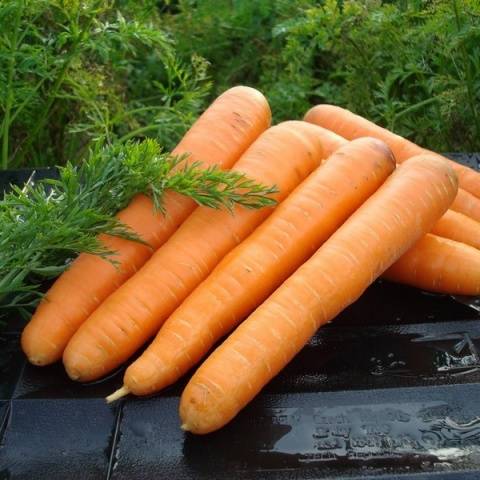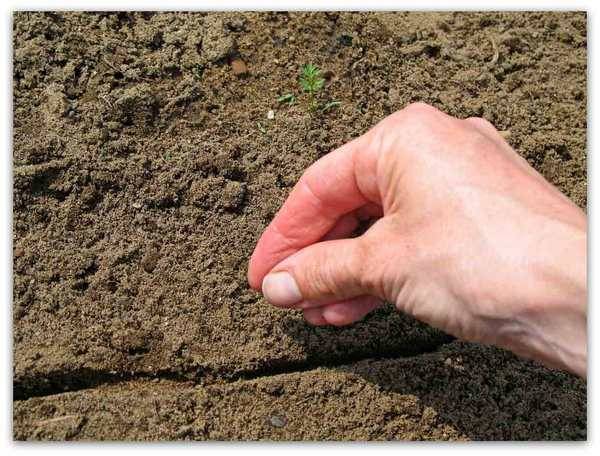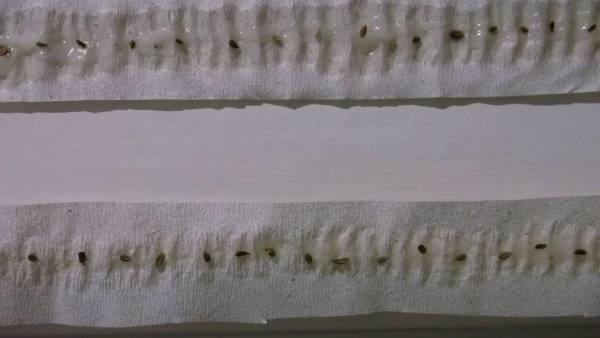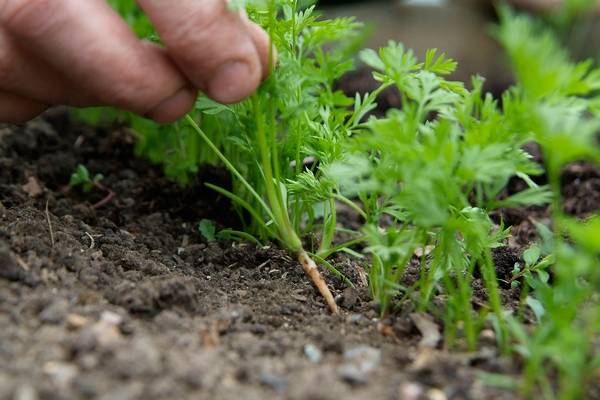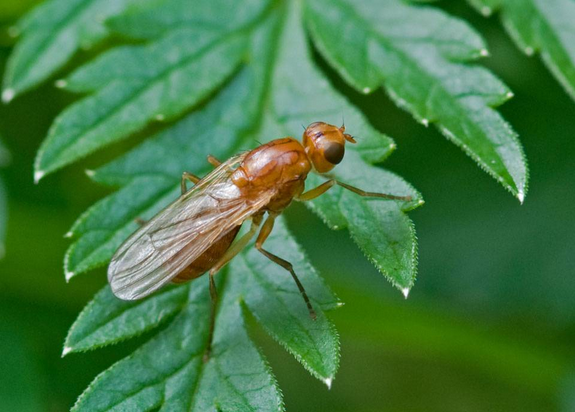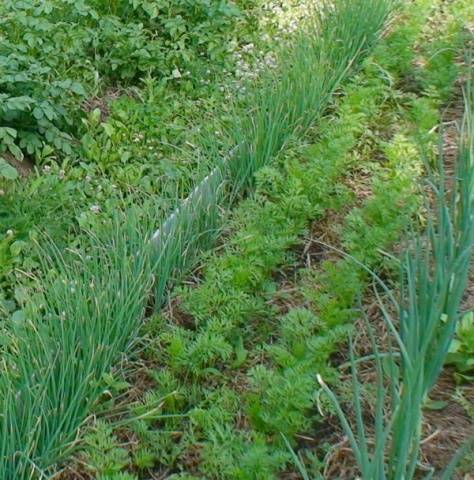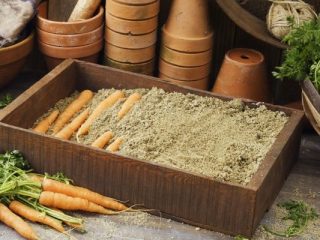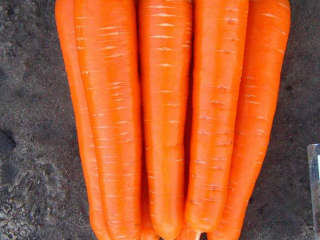Content
Today, there are so many different carrot seeds on the shelves that the eyes run wide. Our article will help you make an informed choice from this variety. Today, a hybrid variety of Maestro carrots is targeted. And we'll start with the manufacturer's promises.
Description of the variety
Carrot Maestro F1 variety that belongs to the Nantes variety. This variety is very popular in Russia. Among the varieties of this type, there are carrots of different ripening periods. Maestro belongs to the late-ripening varieties of carrots. It grows in length up to 20 cm, and in diameter it can reach 4 cm. The weight of one root crop can reach 200 grams.
All root crops of this type have a cylindrical shape with a blunt tip. The fruit is bright orange in color, smooth and does not crack.
They are characterized by sweet and juicy pulp and have a small core. Carrots of this variety are good both for fresh consumption and for preservation. In addition, according to the manufacturer, this variety is highly productive. Marketable yield is 281-489 centners per hectare.
Sowing site preparation
Since the variety is late ripening (growth period 120-130 days), it is recommended to sow as early as possible. In the middle lane, you can start sowing carrots of this variety in the twenties of April. Carrots are a rather unpretentious crop, and choosing the right place for planting it is half the battle. The following conditions will be optimal:
- the soil should be loose, because the shape of the root crop suffers from dense soil. It is better to dig the garden in the fall, and just loosen it before sowing;
- the site should be moderately moist, because on wetland there is a high risk of infection of the plantings with a carrot fly;
- the bed should be in full sun, the shade will have a detrimental effect on the quality of the crop;
- the soil should be rich in humus;
- only neutral soils are suitable for carrots, so it is not recommended to use fresh manure as fertilizer;
- the harvest will be good if potatoes, tomatoes, legumes or cabbage grew in this place before the carrots;
- planting carrots in the place where parsley, sorrel or dill grew before it will not be very successful;
- it is also beneficial for the harvest and the observance of crop rotation. Do not plant carrots in the same place more often than once every three years.
When the planting site is selected and properly prepared, you can go directly to the seeds.
Seed preparation
Then put on a cloth and dry slightly - so that the seeds do not stick together, but at the same time they are wet. In this state, they can be stored in the refrigerator until sowing. Such hardening will benefit them. Sowing with dry seeds is also allowed, but in this case it is necessary to moisten the soil well. Otherwise, the lack of moisture will affect the seedlings. The sprouts will be weak and uncooperative.
Sowing carrots
When the weather permits, grooves are cut in the prepared bed every 15-20 cm, into which the prepared seeds are sown. You can simply "salt" them, or you can work hard and spread out one seed every 1.5-2 cm.
But as a rule, in both cases, the seedlings will still have to be thinned out.
Experienced gardeners advise the method of sowing carrots using belts. A thin paste is made from water and flour, with the help of which carrot seeds are glued onto thin toilet paper, cut into strips 1-2 cm wide.
When it comes time to sow, the previously prepared grooves are well spilled with water and these ribbons are placed there, seeds down. Then press the seeds to the ground and sprinkle them.
Carrots sown in this way grow in even rows, which means that it does not need to be thinned out, it is easy to loosen and weed weeds... And the fruits sown in this way are even and large, as they grow in the open.
This method is popular, therefore seed producers also produce Maestro carrots already glued to the tape.
If you still have questions, watch the video about planting carrots in open ground:
Thinning of seedlings
The first shoots will start to appear in about a week.
It is better to do this when the first real leaf appears on the sprouts. Perhaps, after the appearance of the second true leaf, the seedlings will have to be thinned again. As a result, one plant should remain per 5 cm of area.
After pulling, you need to water the seedlings
Care. Pest control
Caring for the Maestro variety is simple. It is important to control weeds, especially at the germination stage. Otherwise, the grass can drown out young shoots. Later, when the tops gain strength, weeding can be carried out less often, because for already grown carrots, the grass does not pose any danger.
Moderate watering is possible on especially dry days.
With pests, too, everything is simple.
It often appears in thickened plantings, or in swampy beds. The best way to deal with it is planting onions right in the garden with carrots. The smell of onions will keep the carrot fly away.
If this method does not work for you, you can use chemicals.
All these tips only at first glance seem difficult, having tried it once, you will understand that growing carrots is not so difficult, and with good seeds, you are simply doomed to success.
Harvest
It is better to harvest carrots on a dry sunny day. It is better not to rush with the timing of cleaning. In September, carrots gain up to 40% of the mass, and also store sugar. We dig out the root vegetables, and let them dry for an hour in the open air. At this time, the earth that remains on the carrot will dry out, and then it will easily be removed. Also, at this stage, you need to cut off the tops, while capturing part of the carrot "bottom" (about 1 cm). This operation will prevent the crop from germinating, since we are removing the "center" of growth.
Storage tips
Late-ripening varieties are distinguished by good cold resistance, disease resistance, which means that Maestro's carrots will be well stored. According to customer reviews, root crops retain their presentation and taste until the next harvest. The taste does not suffer during storage, moreover, all useful substances remain intact.
We hope that our article was useful for you, and now it will become a little easier to choose the “same” carrot variety. If you already have favorites among the seeds, share with us. After all, the collective mind is power!
